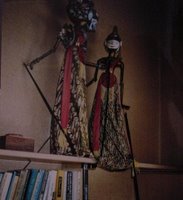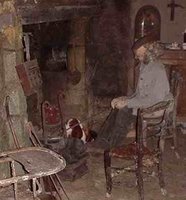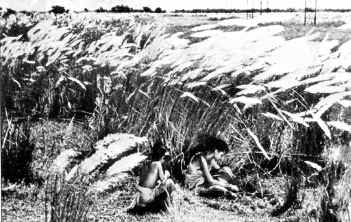
Mauricio sent me this photo--found in his desk drawer--from Fowles Street in Oceanside. The Indonesian shadow puppets--they were on that high shelf in my parents' house for as long as I could remember. Dad purchased them at the World's Fair, in New York--maybe 1964, brought them back for us. It was very much the kind of thing he liked to do--a souvenir, yes, but with something of a higher purpose--a part of the wider world, like the cards--many, many of them--that he'd send me from the museums--the Guggenheim, the Modern, the Whitney--modern museums, the ones of today--how these things could become part of our lives, shared that is... Rememeber pondering his choices--Anuszkiewicz, for instance, or Vasarely--"It's what they're doing, son." A great hope in that--the bounty of the ongoing...
Of course, and more recently it was Colin McPhee's book, A House in Bali--with McPhee's own photographs and stories. Read it last spring. McPhee had listened to Balinese music in New York, maybe 1929--the early gamelan recordings--and knew instantly that this would be the rest of his life. An absolute journey of discovery--the past becoming the present, disappearing at the same time. Priceless in its telling...
Also important--the books below, captured incidentally (as with everything). And the shelves themselves, now with me here, holding songs...




